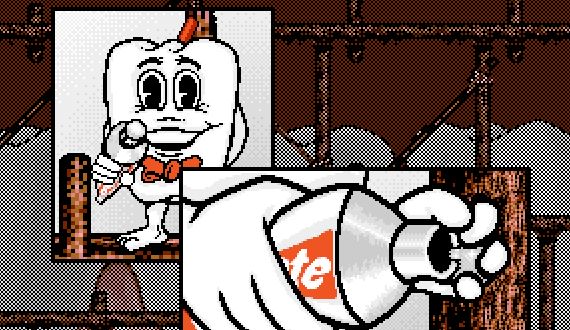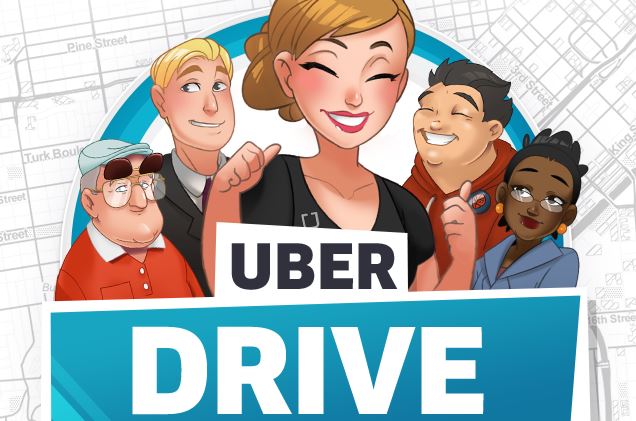7 amazingly terrible corporate promotional games
These companies thought a branded videogame was surely their path to coolness. They were wrong.

Most advergames make sense. They're stupid, but they make sense. I, like every other idiot middle schooler in America, enjoyed my Whopper and my copy of Sneak King. Some people say those Chex Quest games were pretty good. I first learned what a Toyota Yaris was thanks to that dumb Xbox 360 downloadable. These sorts of games are blatant marketing, but they have just the right twist of humor or absurdity, or just enough actual fun game design, that they work. People will play them. They will directly impact behavior. Cue someone saying "Let's go to Burger King instead of McDonald's so I can play that bad Mario Kart clone." It's the same as getting a Happy Meal toy, only older and grimmer.
But then there are those other advergames from esoteric corporations that transcend time and space. You can almost picture the boardroom meeting where, in an effort to pretty up a patently evil oil company's image, some slick Brand Experts suggest just the thing: a browser game about fracking. Eureka! The kids will love it.
These promotional games seem to exist through either a fundamental misunderstanding of the video game form or good old-fashioned hubris. I love them, because they're living proof that comically bad ideas can still fly, and that sometimes a toothpaste company will approach a developer with the best, worst intentions. Here are some of our favorites.
Blackwater
No, you didn't dream this. In 2011, Blackwater, the infamous private military company best known for the slaughter of 14 Iraqi civilians in 2007, absolutely did publish its very own self-titled video game. Was Blackwater an ArmA-esque tactical meditation on the impossible quandaries of modern counter-terrorism? Was it a shockingly self-reflexive apologia on the necessities for mercenaries in a fraught global conflict? Was it a black screen that immediately refunded you all of your money? Nope! It was a shitty motion-controlled rail shooter with one of the most painfully awkward trailers ever released. The tonal discrepancy was amazing.
If you've been convicted of war crimes, you're not allowed to make a video game. I'm pretty sure that's in the constitution.
UberDRIVE

UberDRIVE is an iOS game cooked up by Uber in 2015 which you do your best to identify the "safest and most efficient routes" to take passengers to and from their destinations. According to my research it was developed by the company purely as a recruitment tool, and as a way to give people a better idea of the lives of the rideshare industrial base. Uber clearly hasn't gone far enough, though. If they really wanted to make UberDRIVE accurate, they would take 30 percent of your high score, right off the top.
Urban Jungle
Funded by the glorious Croatian city of Rijeka, Urban Jungle is a driving game that aims to teach you, the player, all the rules and regulations of the road as you're careening through the twisty streets of the Dalmation Coast. The idea was to give new drivers a more immersive lesson in the wonderful world of traffic violations. Out of all the weird advergames on this list, this might be the only one with some small upside. Like, the next time I get a ticket, I'd much rather be forced to play a few hours of Urban Jungle than go to *shudder* comedy traffic school.
Keep up to date with the most important stories and the best deals, as picked by the PC Gamer team.
Mojo Master
I'm dreading telling my future children that there was a moment in the mid-2000s where a ton of young men were bamboozled by a rancid-ass body spray into thinking that women would literally fall from the sky into your lap if you added a dab of, like, Alpha Pi musk to your neck. But yeah, that was Axe.
Axe is a cultural afterthought now, but at the peak of its power, it even made a video game in 2005 called Mojo Master. It played out like a proto-Super Seducer, where you leveraged both the worst pick-up lines in the world, and the limitless power of smelling like a dummy, to pick up polygonal bombshells. The trailer is worth watching for its extremely of-its-time ersatz Paul Oakenfold soundtrack.
Vision: The 5 Dimension Utopia
In 1992, the German building society LBS proved that they were offering an all-encompassing paradise by selling a video game called Vision: The 5 Dimension Utopia, which has maybe the most awkward syntax of any game on this list. Vision was sold in LBS branches, and it plays out like a loose management sim where you keep the citizenry of a futuristic city happy. Good luck finding any information on this thing in English. What I can say is that despite it being a weird avergame from a deeply optimistic financial institution, some older German PC gamers look back on Vision with fondness. Apparently it played pretty well!
Harald Hårdtand: Kampen om de rene tænder
That name translates to "Harold Hardtooth," and he is an anthropomorphic tooth armed with toothpaste and toothbrushes, eager to dispatch a legion of bacteria in some poor soul's mouth. This game came out for the Commodore 64 in 1992 and was published by Colgate. Yes, the dental company. If you think we're approaching a weird symbiosis between corporate tie-ins and creative interests in the gaming industry today, the early '90s would like to have a word with you.
Quest For Oil
Penetrate the earth's crust in the sea of Qatar! Ignore the expensive environmental impact analysis from pencil-necked dorks! Click through eight billion text boxes dryly explaining the refining process! Look, I've never played Quest For Oil, but that's how I imagine it working. This subsurface drilling adventure was released by the oil company Maersk in 2013, and it's actually kind of adorable. Energy conglomerates are fixed in the distant outer reaches of consumer choice—nobody makes a conscious decision to power their house with, like, BP. Still, Maersk found a need to show us what makes them special, as if I had any choice in choosing their services, like buying a box of Frosted Flakes over Cheerios. I can't hate that!

Luke Winkie is a freelance journalist and contributor to many publications, including PC Gamer, The New York Times, Gawker, Slate, and Mel Magazine. In between bouts of writing about Hearthstone, World of Warcraft and Twitch culture here on PC Gamer, Luke also publishes the newsletter On Posting. As a self-described "chronic poster," Luke has "spent hours deep-scrolling through surreptitious Likes tabs to uncover the root of intra-publication beef and broken down quote-tweet animosity like it’s Super Bowl tape." When he graduated from journalism school, he had no idea how bad it was going to get.

